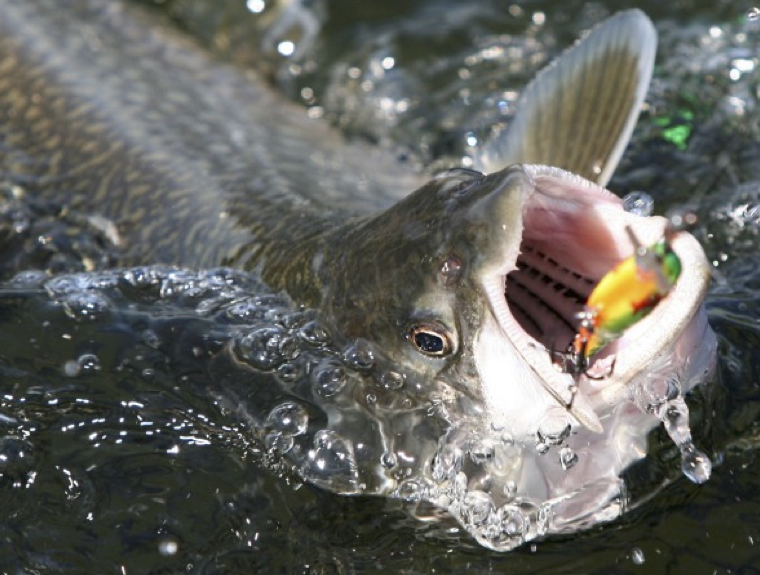
Lake Trout. Image: Sam Cook, Wisconsin Dept. of Natural Resources
A reduced quota for taking Lake Superior lake trout now rules in Wisconsin waters.
The emergency rule protects the trout population of the Apostle Islands region of Lake Superior, according to the Wisconsin Department of Natural Resources (DNR). It’s the first time the trout quota has been reduced for sport anglers.
The state’s Natural Resources Board approved the emergency rule that reduces the daily limit from three fish to two, one 20-25 inches in length and one longer than 35 inches.
For waters west of Bark Point, Wisconsin, regulations remain unchanged: three lake trout with a 15-inch minimum length and only one longer than 25 inches.
This rule applies to all commercial and sport anglers, said Terry Margenau, the DNR Lake Superior fisheries supervisor. The Apostle Islands region is the only area affected by the change.

The WI-2 region of Lake Superior is the area affected by the emergency rule, which reduces the daily bag limit of lake trout. Image: Wisconsin Dept. of Natural Resources
The portions of Lake Superior in Michigan and Minnesota aren’t under the emergency rule.
“Lake trout fishing is very important to the community,” said Jim Scott, the president of the Apostle Islands Sport Fisherman’s Association.
The association is worried about the new rule, Scott said, and the members are concerned about overharvesting and believe the change will have a negative economic impact in the area.
Scott said he is “afraid that it will become a normal rule.”
The rule lasts for 150 days, with the possibility of two 60-day extensions. With the extensions, it would cover the remainder of the 2015 lake trout season, which lasts through September.
“We need to move fast,” said Margenau. The emergency rule will was adopted to help the trout population replenish quickly, and it became effective Jan. 9.
The Bayfield Chamber of Commerce is gathering information pertaining to the rule and is “working with locals to see how it will affect tourism,” said Executive Director David Eades.
A public hearing on the emergency rule will be held by the DNR on Feb. 16 from 5 to 9 p.m. at Ashland High School.
